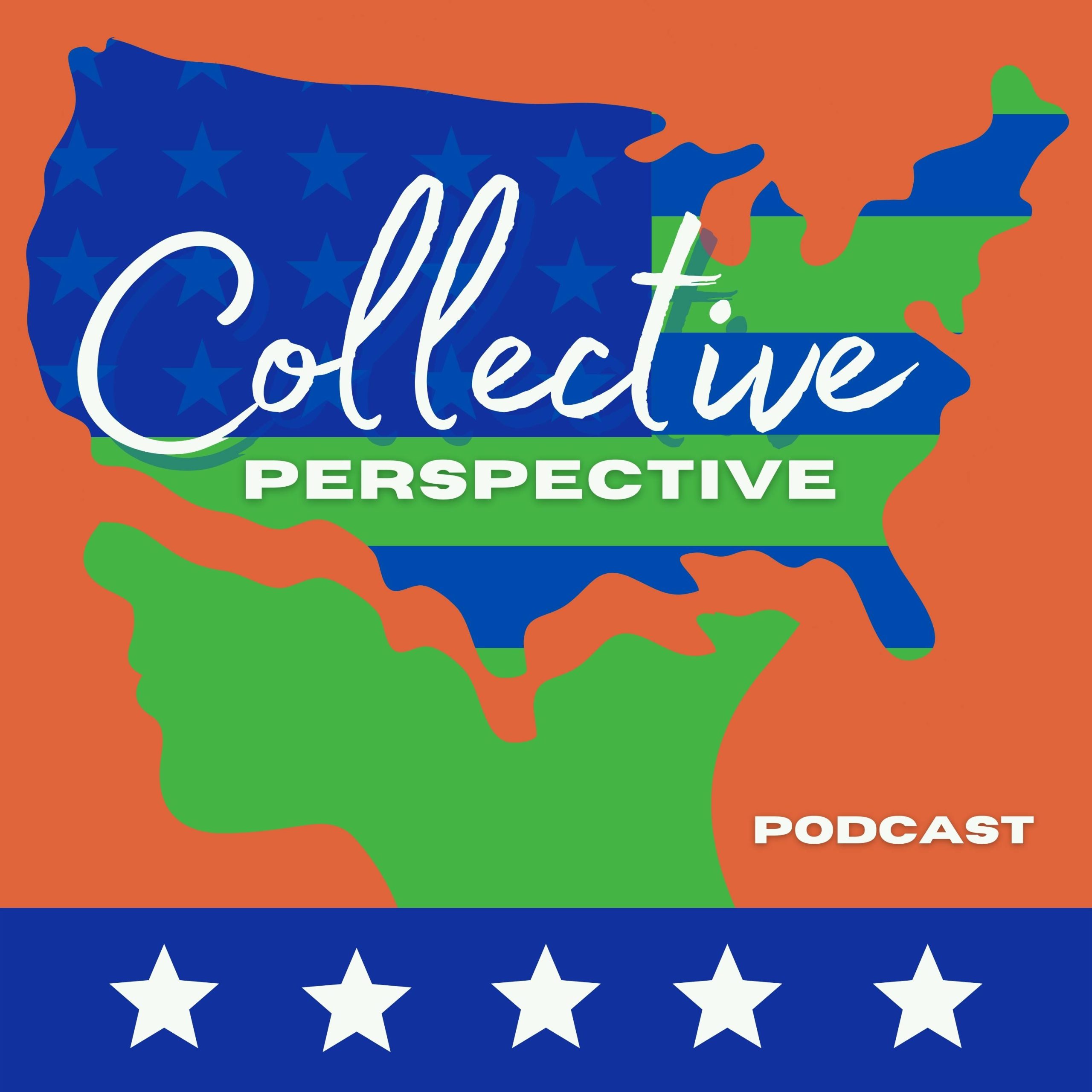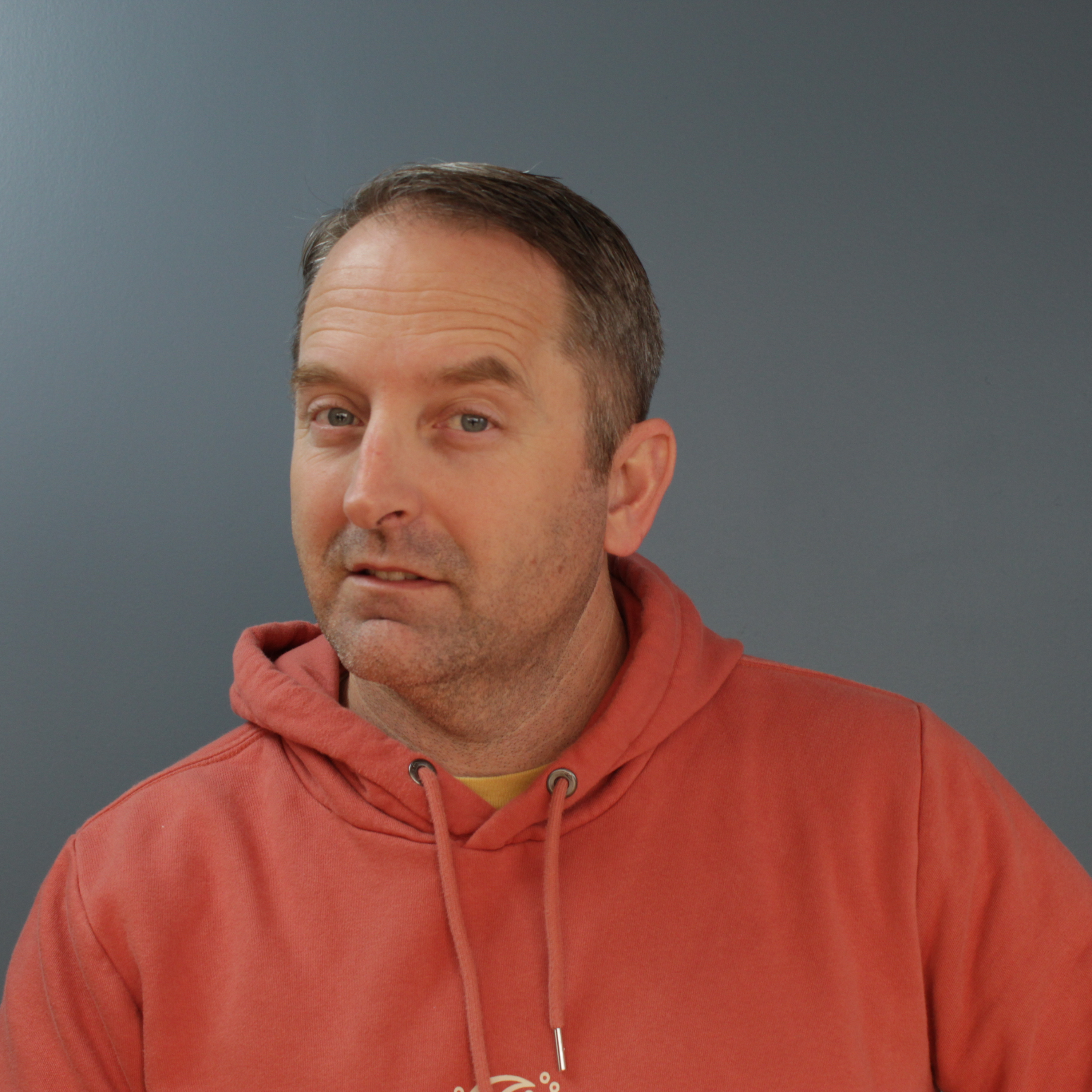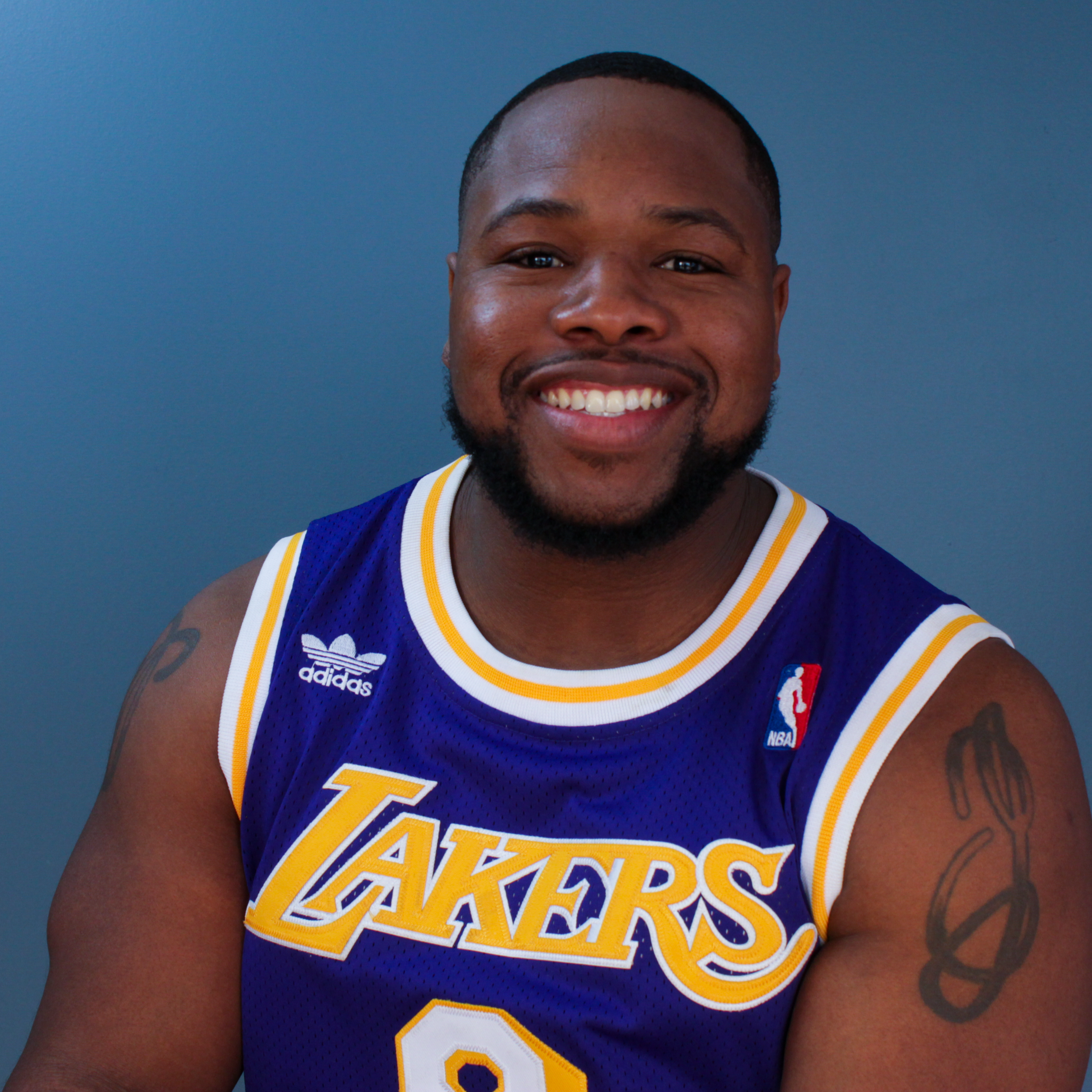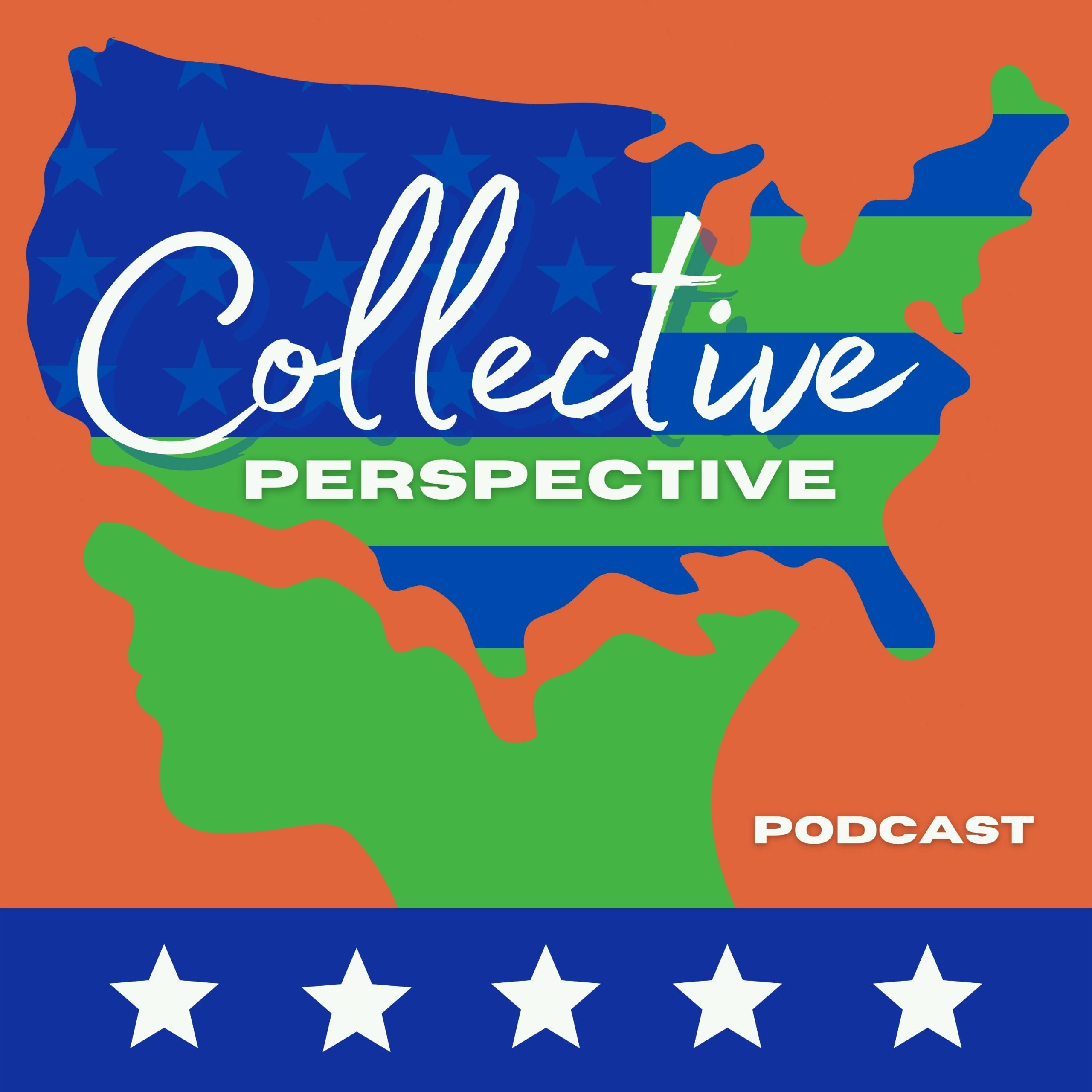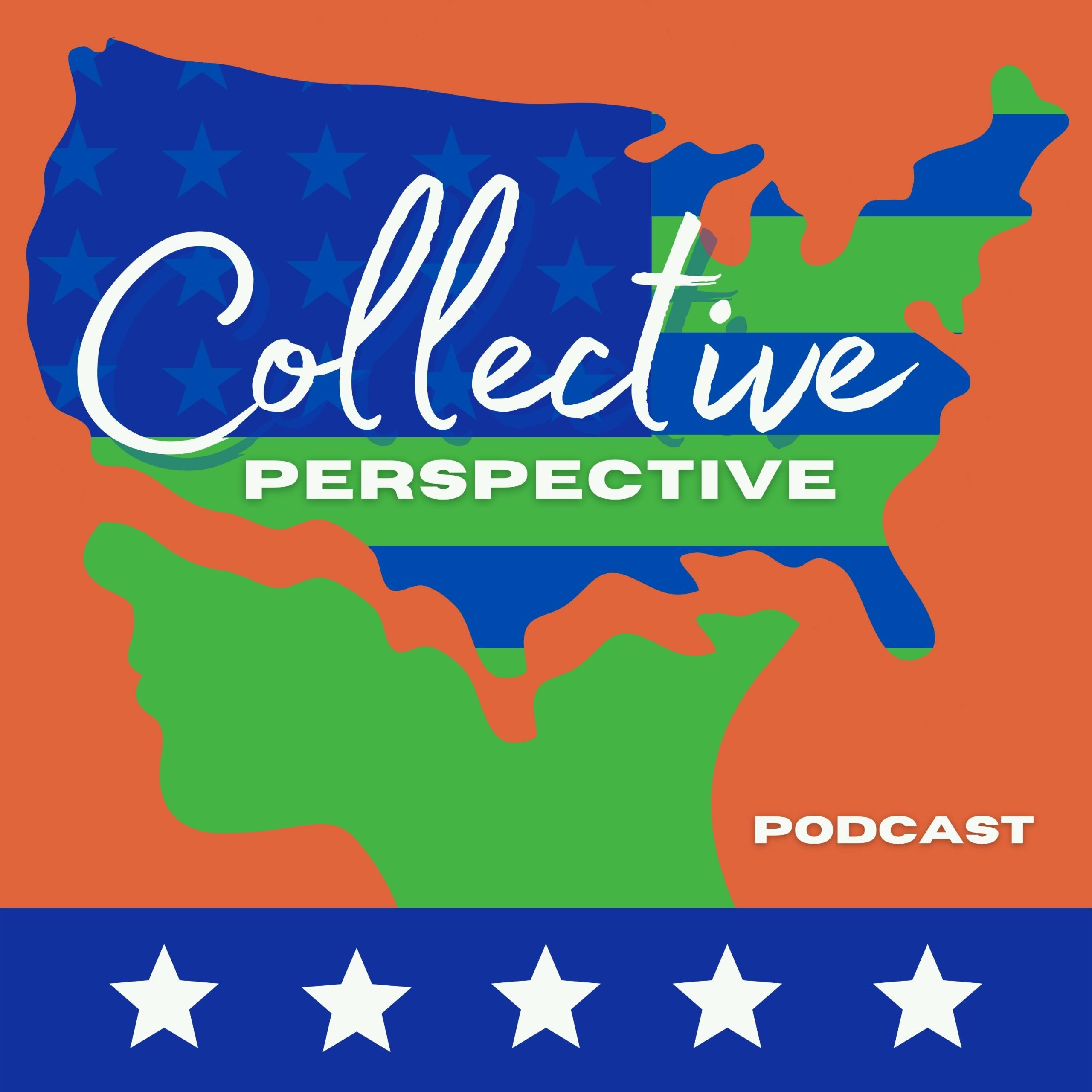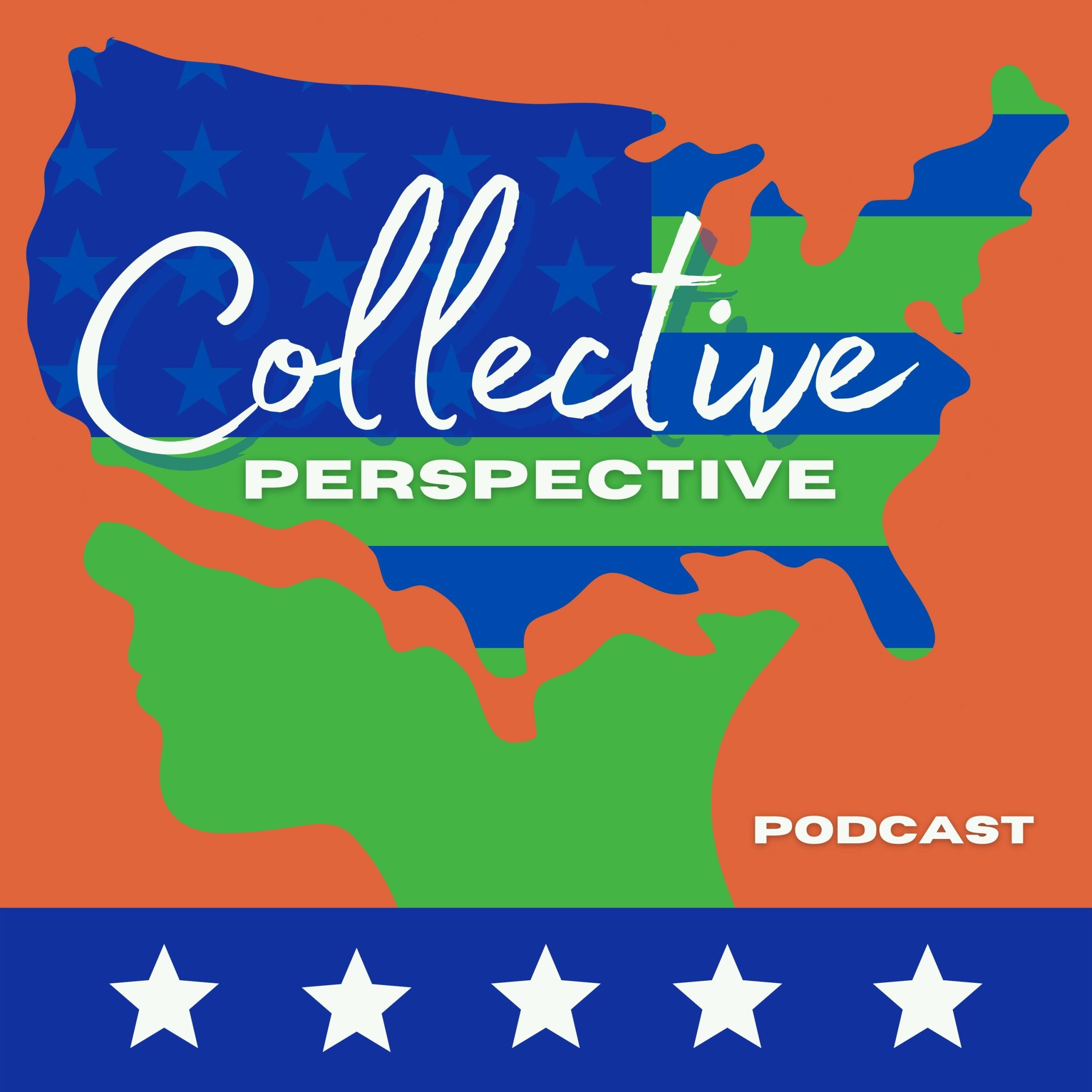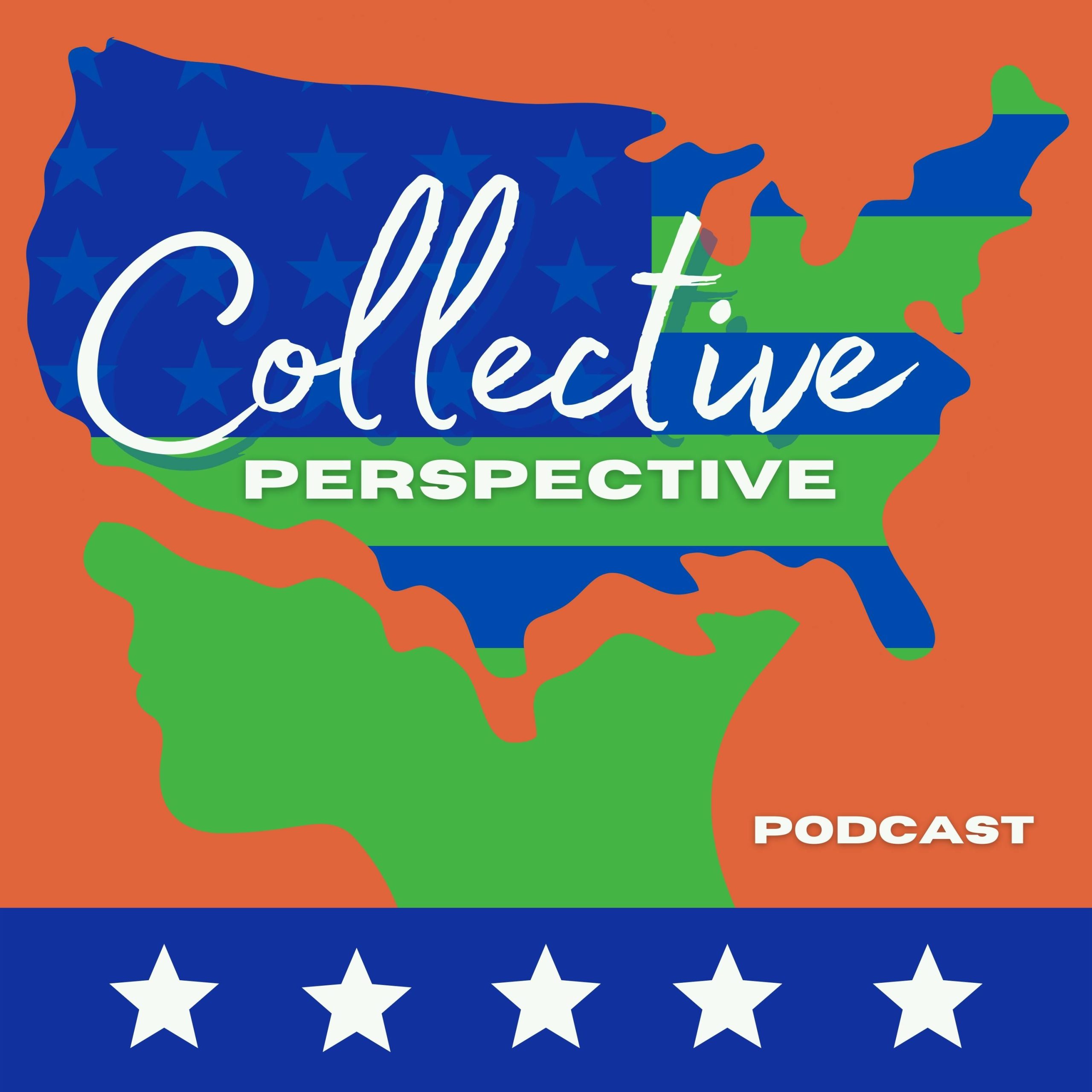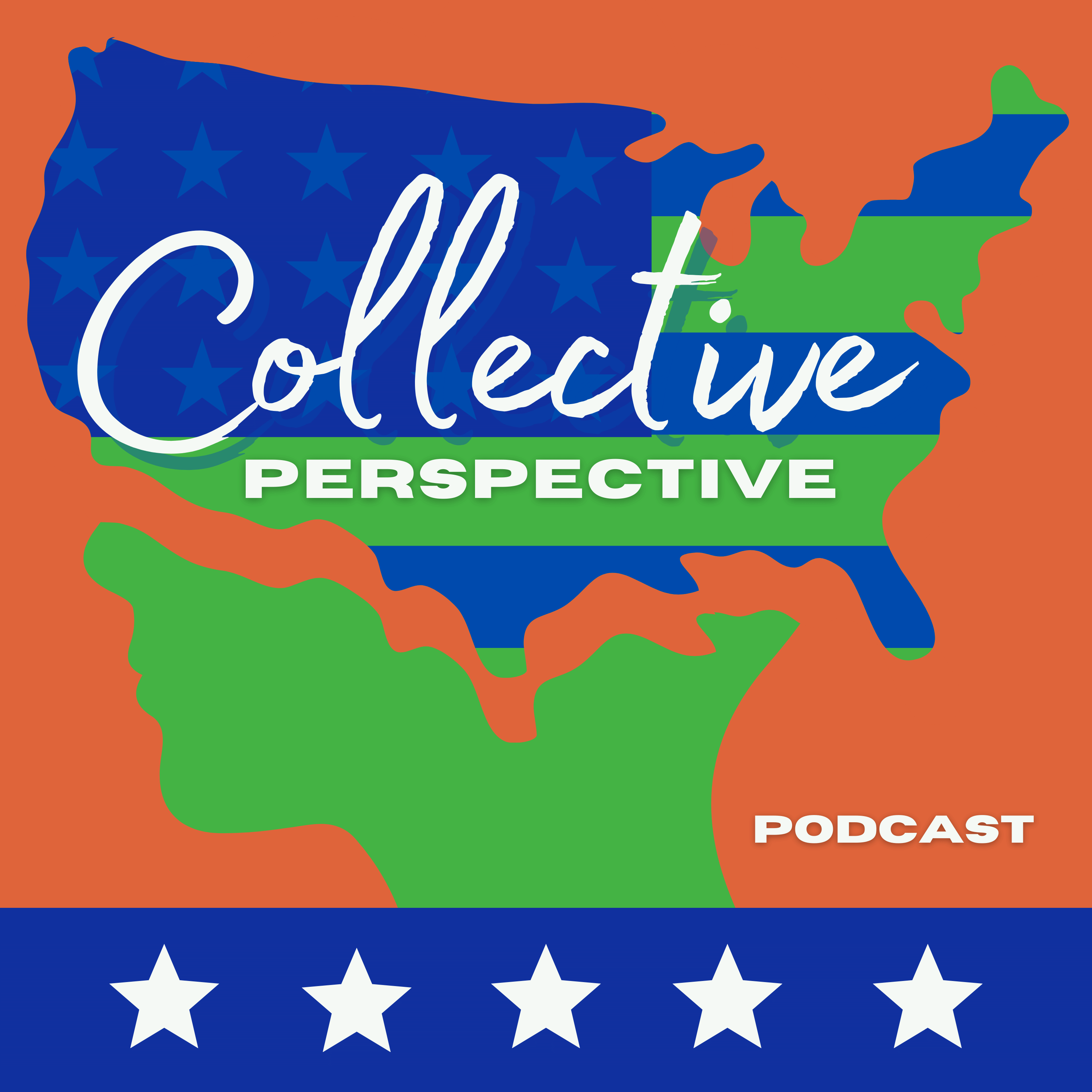What do you think? Where do we draw the line when it comes to propaganda and media in America? Join us and keep the conversation going on the second part of our discussion where we talk about the five of areas propaganda and start to uncover the corporations behind the media in the United States. Which of them should be allowed? Should the government protect us from propaganda? We can all agree that we don’t like being lied to, but where do we draw the line?
View Full Transcript
Episode Transcript
A lot of the plain folks these days, you’re going to hate me for saying this, the pharmaceutical commercials, those are everyday people. Oh, this cleared my eczema, or this helps with my Crohn’s disease, or this does this, and I’m feeling better, I’m more active, I’m able to be out with my friends because my psoriasis is not acting up.
Those are, I think that a lot of the plain folks is being used with the pharmaceutical industry. The collective perspective is set out on a mission to understand some of the most impactful and controversial trends and topics in our lives today. Hi, I’m Jeff. Hi, I’m Travis. Hi, I’m Jawad. Can we find common ground in the middle in a peaceful manner, but with real community benefit?
We believe as veterans and concerned citizens, we are striving to bring together diverse views with fact based research to navigate this tough terrain in a search of a path forward. How do we unify? and prove we aren’t all that much different. So meet us in the middle. Not the left. Or the right. In Season 2, we have decided to focus on researching and exposing fake news and fake information.
We’re tired of the media lying to us. We’re tired of the fake news. We’re tired of the government lying to us. We want And our mission is to seek the truth. Everybody, this is the Collective Perspective Podcast. And we’re here in sunny Jacksonville, Florida. Talking to you from VACOM Recording Studio. Hey everybody, this is Travis with the Collective Perspective.
And I’m here with my good friends. Jeff. And this is Jawad. Let’s not forget. J Dash. Yeah. Thanks for the intro music, bro. Musical genius. And this is episode 26. We left off last episode about lying, I think. Lying in the media and propaganda. We’ve been lying to you for the really longest time. So as we discussed last episode, we started talking about the five uses.
I’m sure there’s more. But five uses of what propaganda is used for and then the eight types of propaganda. I thought it was important to bring up the fact of the types of propaganda again, because this is really where it affects us on a, on a daily basis. There is commercial advertising. Public relations, which can somebody tell me what public relations is again?
Public relations is, uh, say a company or an individual does something and it’s not viewed favorably. Public relations would come in and put a spin on it to make it look more favorable to the company, organization, or individual. There’s also political campaigns, diplomatic negotiations, legal agreements, and collective bargaining.
Legal arguments? Legal arguments. Sorry, what did I say? Agreements. I guess it could be both. Uh, legal arguments. Maybe it could. Pretty much the premise is non, being non biased, or having a neutral perspective. That’s what public relations is. Well, what I think it is someone who caters to the public with a non biased response to not make the company or the individual look like.
They’re not for that particular group or that particular agenda. That’s their goal is damage control, putting out fires, making sure that the company is represented in a balanced perspective. And I think that’s why we had some difficult times getting sponsors or guests last season. Didn’t you speak with some of the public relations people at a few different organizations to see if they would want to?
Of course, I tried both. Clay County Sheriff. And Duval County Sheriff’s and they just didn’t want to talk to me, but that’s okay. We had my uncle talk about that one though. Yeah, we did. I guess the question would be, so hey, let’s talk about this a little bit further. And I have a question for you guys.
Which of these areas of propaganda should be allowed? Why and why not? Normally, we would have guests. From the outside recordings, but this time we couldn’t get any we’re talking about it openly And if you one of you guys want to start when it comes to these types of the uses for propaganda Should it be allowed?
I think it should and why because I I feel that it borders on that protected speech area as being free speech I do have a problem with some propaganda though overall that it can be very misleading and leave out key information And that’s where we as consumers of information need to be more focused and kind of aware of what our biases are.
Understanding your own biases is difficult for some people to do because they don’t really look into, into themselves and identify what their core values are. And when you hear information or propaganda from other sources, propaganda plays on an irrational belief. When you understand what your biases are.
For me, they’re the ones that it’s okay to use against the public. When I look at this list, one that, that I think could be used for good is testimonial. For me, it encourages individuals. To be individuals or can relate to someone that may, they can relate to. You’re talking about the types of propaganda, not where they’re used.
We were talking about that last episode for sure. Political campaigns, diplomatic negotiations, legal arguments, and collective bargaining. I think where it shouldn’t be allowed. Okay. Allow political campaigns and diplomatic negotiations. And the reason I think that is because And we’re going to talk about it a little bit further.
Okay, cool beans. My point is, is that political campaigns, with the internet, Americans aren’t the only ones that can participate or say anything or promote any type of propaganda. I don’t want other countries to push propaganda towards our political campaigns. I think political campaigns and diplomatic negotiations need to be Fact only.
No, no propaganda. Not because I want freedom of speech to be hindered by it. I just think that there is too much room for manipulation in there where it’s too important to not have some type of restrictions. I think I understand where you’re coming from. I only partially agree with what you’re saying there.
Propaganda, in that sense, is if there was a place that I thought that it couldn’t be used, it would be in a political campaign. But how would we do that? How would the campaigns do that? I’m not telling you to pick each one. You could just simply just tell me, I don’t think it should be, I think it should happen.
That could be your answer. That could be someone else in the, that’s not in the room’s answer. I think I’ll stick with my first thought on that, that, yeah, I don’t think that it should be limited, but us as consumers do need to be aware of what propaganda is and… know our own biases before we see something or when we see something.
And I think that if it, and this is why, I think we, we have to notice that if it has a, an effect on our feelings or emotions, that we need to take pause and really look at it. Because no matter what situation we’re in, out of these areas, there’s always some sort of propaganda. I guess it poses a question, guys, is propaganda good or bad?
As long as humans have opinions, it’s always going to be good for someone. It’s going to benefit someone in some way. So, it’s all opinionative and bias. So, it’s going to literally be impossible for it to ever be bad to someone. It’s always going to benefit someone and then there’s going to be someone on the other side of the fence.
That’s offended or doesn’t like it. But as long as we have opinions and we have biases, it’s always going to be good to someone. I don’t think there is a way to limit propaganda. So we need, that’s why I think we should have a way to understand that, hey, this is making me feel a certain way. Let me take pause and really think about it.
But you said you didn’t know if there was a way to limit propaganda. It’s all over the social media. The social media platforms have the ability to limit. what propaganda is on their platforms. Absolutely. But, this is what, this, this is the, the caveat here. Who decides what’s good and bad? What’s good for me might be bad for someone else, and whatever, whoever’s running that social platform could say.
We don’t like it, so let’s just shut it down, no matter who it’s good for or who it’s bad for. Yeah, the majority. The majority is going to always dictate how it’s going to benefit them, the 1%. That is the 1%. That’s the majority, because they hold the cards, they hold the power, they can dictate the information, and there’s nothing we can do about that.
Let me ask you guys another question. Should the government protect us from propaganda, assuming that it’s bad? And how would you go about implementing that plan? I guess the best question is, uh, have they tried to prevent propaganda before? Are there rules or laws against propaganda? I think the government probably should have some say in what information comes through from maybe other areas or other, other countries.
Because we don’t want someone telling us that, hey, this is what’s wrong with you guys, and… You mean like the Anti Propaganda Act of 1940? Uh, well, that might be a good start. Um, to, to answer that question from my perspective, That’s almost the equivalent of asking them to shoot themselves in the foot.
They’re basically, that is the, the, the fuel to, to the government machine. That is how they stay relevant and they stay consistent and they exist is through propaganda. They have to use that as a means to stay relevant and to make us believe that there’s a need for them to make decisions for us from that perspective.
And if they’ve shown us consistently, their interests are not. in favor of what we care about from time to time. Them protecting us is like a contradiction in some perspective. I say that the government has taken measures for propaganda. And as a matter of fact, the, the Smith month act of 1970, I don’t know if you guys know this, but it expired in 2016.
I did not know it expired in 2016. A lot of acts that are put into place. So for example, the disinformation act of 2022, This bill establishes a commission and requires other activities to support information and media literacy education and to prevent misinformation and disinformation. And that was just introduced in March of 2022.
Also in 2016, like I mentioned, on November 30th, legislators approved a measure within the national defense authorization act to ask the U S state department to take action against foreign propaganda. What that probably relates to is Meddling with people’s elections. But not to get too crazy on the topic of elections, we’re guilty of it too.
Pushing propaganda into other countries, and trying to persuade them to, to vote a certain way for democracy. They did it in Iran. Iran Contra. They’re doing absolutely. I mean, you think of all the color revolutions. Venezuela is one of them. So basically, they let that expire, but it also allows the United States government to use propaganda against the U.
S. public. How do you feel about that, guys? Uh, does it really? Should the government be allowed to do that? Or does it allow… Or are they just doing it anyway? I did read up on that article about that’s come up on conservative circles and some other place conservative social platforms that the government passed a law saying that they could use propaganda on their own people.
When you read into what that law actually does, is it allows the government to take those broadcasts that were being sent to, say, Somalia or a foreign country for people to come here and be expats of their own country. It allows them to continue to hear that news or to hear the, the perspective of their new homeland within their homeland of where they are right now, as opposed to being in a foreign country.
It has to be asked for. It’s not something that is out there given and it’s just going on right now. I think, uh, the cable or broadcast companies in the area. have to request that that programming be played in that jurisdiction or that one area. One of the examples that I found was in Minnesota, where they have a high Muslim or Somali, I think a lot of Somalis are in, in Minnesota.
And they are allowed to have that, say, America One or whatever it’s called, played in that city or in Minneapolis or wherever that, uh, a large group of that. ethnicity or that race or that culture is living so they can still hear the perspective of their new nation. regarding the news of the world in their areas.
And it’s, uh, it’s funny you say that about Minnesota and Somalia. The Somalians. A friend of mine had a girlfriend that’s from there. Speaking of propaganda, they actually campaign certain narratives in that area. She is really not, not feeling the Somalians at all. It’s like this thing where they, they are like, uh, we wish they would leave kind of thing.
Wow. Yeah, it’s like bad. They don’t make very good food either. And she’s like, it’s like a disdain, like her, she’s not even dating her anymore. But when she was explaining them living so close in that area, they live on the outskirts of Minnesota. And she was really, it’s like a disdain, like, Oh my God, they’re taking over and it’s ridiculous how, and it’s like propaganda.
It’s like, they, they’re trying to sell a certain narrative to the natives and the people that live in Minnesota and the Somalians are like, it’s like. Taking over the actual place, I mean, it’s bad, really bad, but yeah, to answer your question. As you can see, the government has made efforts. I’m not saying they’re good efforts or bad efforts or the wrong effort.
I’m just saying that the government has made efforts over time to limit. Some type of propaganda. I think propaganda is good Primarily because you’re trying to persuade someone to see your side And if you’re starting a relationship with another person an intimate relationship more specifically There’s information that you there’s no there should be no propaganda there Try to get that person to like you or to be sexually involved with you I think if you take it on a personal level there Propaganda would be really bad and but people do it like there’s catfishing.
They’re using False information to persuade you to come over here to do this There’s people that constantly are calling you on your phone trying to persuade you to do this or send money to Nigeria or hey I got some art project. We’ve all heard that all of these scams are also forms of propaganda And we think they’re all like flies, or roaches, like, pfft, we should get rid of them.
Yes, you’re right, we should. Well, I think everybody, and I do mean… Pretty much everybody that uses social media posts propaganda. There are some that will show the negative aspects of their life, but many of them, it’s all window dressing. You only see the good things that they want you to see when they post.
You don’t see the negative. Everybody lives a good life on Facebook. Oh my God. Right. Everybody’s Cindy Crawford and Brad Pitt on there. I went in there and started just deleting all my, started to, I went back a little ways and just deleted all my pictures of my kids. They don’t need to be on there. Yeah, I don’t have many pictures of my kids on there, but yeah.
But one of the reasons that’s, that’s a propaganda, but one of those reasons why I have that is. propaganda. I have this thing in sales where, uh, I can’t be omnipresent like God. I can’t be omnipresent like Pepsi. I can’t be omnipresent like any, a lot of things, but I can try. And so I try to stay on an algorithm where I’m constantly, especially with the podcast where I’m constantly at least post in two things a day.
So I stay in an algorithm and I don’t fall out and People that are at least interested it’s going to their feed because I’m constantly feeding it new things very complicated stuff Yeah, I just I don’t want to be personal with the public. I don’t trust them at all I was just saying most people don’t even like it or do anything I mean, if anything, I’m at least getting in their head somehow if they see it and it passes their timeline Yeah, they at least see the post in their timeline.
There is some sort of impression left. Yeah, I don’t want to feel vulnerable So have you guys heard of the FCC federal? Communications Commission? Yes. It’s actually, they consider an independent agency of the United States federal government that regulates communication by radio, television, wire, satellite, and cable across the United States.
What’s their mission? It’s to commission a whole bunch of men in white outfits and helmets. No, that’s Star Wars. The Federal Communications Commission regulates interstate and international communications by radio, television, wire, satellite, And cable in the 50 states, the district of Columbia and us territories.
An independent U. S. government agency overseen by Congress. The commission is the federal agency responsible for implementing and enforcing America’s communication law and regulations. So, really, they are, they, they’re given permission, or they’re given their authority from Congress to institute laws and regulations, is that correct?
The reason I’m Okay. The reason I wanted to bring the FCC up was because you would think that if the government is regulating something, they basically regulate video and audio, right? And so, if it’s on the TV and on the radio, and for years, you can’t watch, you can’t see breasts openly on TV like you can in Europe.
They shy away from any type of profanity, unless it’s on cable. But see, here’s the distinction of where the FCC has the regulation and where they don’t. Is that when it comes to cable, they primarily don’t because it’s not used, cable is not done on U. S. airwaves. But they still have some regulatory authority on it, because if you, I’m gonna throw out some Channel names here because they’re there.
These are cable network, uh, that still follow, I guess, the, the federal government or the FCC’s regulations on decency. That would be your A and E, your USA ESPN. They don’t sit, they don’t swear. They bleep out any swear words and they don’t show any skin out. That’s covered by your undergarments. You know what that’s called?
Travis. What is that? Public relations. What, what I just did? Or what? Everything you just described about how they carry themselves is public relations. How the, you said CNN and all those companies don’t do this and they don’t do that, they don’t do that. It’s because they don’t want their relationship with the public to have those entities, to have those things.
Which is protecting a non bias. But then you get into your other more restricted areas like your HBO, Cinemax, and such. They all have new shows that are no holds barred. Or you get into satellite radio like Howard Stern, and it’s no holds barred. And it really just comes down to whether it’s US Airwaves or not is all they have restrictions on.
That may be true, but I still feel that They would be fined on those other extended airwaves or extended cable, not extended cable, but like your USA ESPN, they do get fined if they drop an F bomb on there. That is, they are still regulating some speech. Cable is a different medium, man. When Janet Jackson…
Am I, am I not thinking of it right as far as cable? Like those are what I think of as cable channels or cable TV. Remember the Janet Jackson Super Bowl incident? That was on airwaves. That was on regular airwaves. So yes, that would be censored or they would get fined. Here’s the difference is that there are cable companies that have cable they broadcast on.
It’s the local channels use public airwaves. The reason why these bigger companies can get away with having whatever they have on cable, and having profanity, and having nudity, is because it’s not used on public airwaves. It’s a membership based. It’s not a local news channel, ABC. Absolutely. And on top of that, those local news channels are affiliates.
ABC owns them, they’re an affiliate of ABC, so ABC is not legally binded by that. Like, W O F L is the affiliate of FOX. W O F L would be our local FOX channel. They are regulated by the FCC. But FOX would not be. Correct. FOX anywhere else is not. And it’s applicable to the certain programming when you watch boxing on HBO.
Really conscious, it’s a larger audience that’s watching the program and they try to monitor or modify the profanity that is being used in those type of settings, whether it be pay per view or it be a HBO boxing match. But it seems like when it’s an, a open public thing, not a sitcom or not like a series that we watch, they are monitoring what is being said, whether it is profanity or any kind of indecent presentation.
And they’re very conscious of that. It’s kind of pick and choose with how it’s applicable to that particular program. And I think what we’re trying to do here is really distinguish what local airwaves, or federal airwaves, are versus cable airwaves. But it cross pollinates it. Do you use an antenna? Were you used to using an antenna for your TV?
Yeah, we, yeah, rabbit ears. That’s public airways. That’s public airways, yeah. Now TVs don’t need to use that anymore, I don’t think. They do if you don’t want cable. Actually, you can get over the air, all of your broadcasting over the air. There was some kind of converter or something you had to buy. Yeah.
It’s a little antenna and you aim it towards where most of the antennas are sending the signal from a geographic area. Wow. I thought you would aim it towards the sun. I’m just joking. Ha ha ha ha ha. So here’s another question for you guys. Should propaganda be treated as unprotected speech or free speech?
I think we already established that. Yeah, I think it should be free speech or protected speech, as long as it doesn’t cross the line into hate or fighting words or those, those types of caveats to free speech. Let me give you a scenario. Let’s say that I… I came up with an advertisement and I wanted you to buy something and you bought it and it didn’t do what exactly what I told you to do, but, and I wouldn’t give you your money back.
And my legal right is that I was using propaganda to persuade you to buy it. I’m not liable for that. What would you say? Small claims Gordon. Now you, you would feel like you were hustled and you have a, a good argument about, you have a good argument about false advertisement. So what’s the difference between false advertisement and propaganda?
Propaganda false advertisement. Is to swindle you into believing that this product is what we’re selling it to you. Obviously, you’re advertising a thing, a product, a something that, that can benefit you and make your daily routine easier. Propaganda, for me, the perspective I have on it is, again, it caters to your beliefs, your emotions.
It caters to how you feel. And the way you see life in some perspective when it comes to a cultural perspective of interacting with other humans. What’s the difference between propaganda and false advertising? If somebody sold something to me and it didn’t do what they purported it did, and they would not refund my money because they did not give me good information.
Should that be illegal? Well, it is. ’cause that’s defrauding somebody and it would be, that would not be the government’s job to regulate and say, no, you can’t say that. I don’t agree. I don’t necessarily agree that that’s correct. However, that’s what we have the courts for. To go in and say, Hey, they defrauded me.
I want my money back. That’s, I think that that’s how that should be. I don’t think somebody should defraud someone or mislead them in such a way that’s so great like that. But no, I don’t think that limiting that speech is, is the way the government should go in that. That’s, that’s becoming dictatorial.
Dictorial? Or dictatorial? It’s dictatorial. Dictator. Oriol. Dictatorial. Dictatorial? Diction is speaking. As long as we have freedom of speech, it’s an open door. It’s so broad. It is a, a danger. To, to freedom of speech. Well, what’s the difference between propaganda and fake news? There is no, no difference. I, I think that…
I don’t think there really is much. Yikes. So what you’re telling me is that fake news is okay. Maybe you’re not directly telling me that, but that’s kind of what it leads to, right? Well, I mean it, whether I feel it’s okay or not, it’s nothing you can do about it. In, in, in many perspectives, it’s nothing you can do.
It’s, and that, it goes back to the individual. You have a responsibility to inform yourself or find the right information so that you don’t feel like someone did anything to you. And that’s an individual thing. You have to seek out your own truth. Yeah. I’m not saying that false news and propaganda, fake news is good.
I’m saying that that’s another one of those things where, hey, if they espouse, um, fake news and it’s fraudulent, then they should be held liable for it. But again, it’s still a broad stroke because Freedom of speech. At the end of the day, as long as it’s opinionated, if they define it as an opinionated news, they’re going to forever have a kind of legal loophole to say…
Based on their intent. Exactly. It’s not, we’re not liable. That is one of my beliefs, that I follow an objectivist kind of mentality, and this is… It’s not the government’s job. In my view, a philosophy espoused by Ayn Rand, mostly, it’s called objectivism. The only proper functions of a government are the police to protect you from the criminals, the army to protect you from foreign invaders, and the courts to protect your property and contracts from breach or fraud by others, to settle disputes by rational rules.
according to objective law. I think we’ve gotten so far away from that. I agree with you, it’s the right thing to do, but that’s, that’s my job. Yeah, the right moral thing to do is to protect the people. That’s the right moral thing to do, that’s the human thing to do. Is it beneficial? It’s the right thing to do.
Exactly. And that’s equipping yourself with the knowledge you need to protect yourself, your family, and the people you love. There you go. No love, no love for firefighters. That’s always been, that’s something that I think that the communities can come together and do better than the government can.
Absolutely. Wow. And to think that those are forms of socialism. Same thing with roads. Do you think? Army Corps of Engineers. The roads were not always They’re more paid for by the government. Private citizens still have to do that, and they have to upkeep. They band together and have a homeowners association and upkeep the roads in their neighborhoods.
That’s just how it goes. Not to change the subject. So let’s go a little bit further, guys. I think in regards to the FCC and their government broadcasts, like NPR, for example, there shouldn’t be any propaganda. It should be straight facts. It shouldn’t be about left or right. There shouldn’t be any bias.
Then when I start thinking about bias, one of the most biased things that I can think of are polls. Yeah, what kind of polls? Talking opinion polls, um, news polls, or maybe scientific polls? The reason this ties into propaganda is because they use polls to manipulate public opinion, which is exactly what propaganda is.
Political polls provide insights into the preferences and beliefs of certain groups or groups of people, often voters in a specific country, state, or district. Polling results can inform policy, track likely outcomes of elections, and help candidates and government officials decide where to invest campaign funds and other resources.
Furthermore, some experts argue that the results of polls, free from government interference, is emblematic of a free and fair society, because posing questions to every member of the community would be costly. So basically they’re trying to come up with an excuse why they have to do it this way because it would, it would cost too much to get a real opinion poll, like when people go to vote, if anything, that should be an accurate opinion poll, I would think, right?
There shouldn’t be no bias in an election poll. But we’re not really getting into election polls at this point. No, and you know, when it comes to polling, I do understand because of the scientific background and all of the research that I’ve had to do, to make a study more robust and reliable, you have to pull from a large group of people and a diverse group of people.
That’s why I place little faith in a lot of polls and public polling that we see on TV. Because, what’s that saying? There are lies, damn lies, and statistics. And that’s what a poll is doing. It’s giving a statistical probability of what majority of the people will think based on a limited sample. How do political polls work?
Public opinion polls influence politicians. How do public opinion polls? They use a push poll. What type of poll is used to manipulate public opinion? It’s called a push poll. I haven’t heard of a push poll. Can you explain that? A push poll is an interactive marketing technique most commonly employed during political campaigning in which An individual or organization attempts to manipulate or alter prospective voters views under the guise of conducting…
They’re actually trying to manipulate voters by saying that, Hey, this is an opinion poll. What’s your opinion? And then they push them to think a certain way. Interesting. Push poll. It’s pushing you towards your views. An opinion poll. They do it with presidents all the time. Popular opinion poll. They give you the impression that people are actually voting whether they like what he’s doing or not, which therefore persuades the public to either like that person or not like that, like that president.
We talked about this before, aside from the podcast. I read a book by Donald Trump’s lawyer, Michael Cohen. His attorney was kind of a personal assistant too, in a lot of ways, because whatever Trump did, he wanted to make sure that it was legal, obviously. In his book, he describes how Donald Trump manipulated the polls, the political polls, and I guess I won’t go too into detail, but it just goes into, like, a push poll, is that once Donald Trump found out that he was going in the polls, he understood that, hey, all I had to do was get the polls.
Because a lot of people believe that what the polls say is what the result is going to be. Yeah, well if they did that then he would have lost the 16 election because all the polls said that he was losing He described in detail how Donald Trump pushed his name in the polls to not for the presidency But to get nominated for the presidency how he went from like low in the polls Like he remembers going into the office one day and go.
Hey boss. You’re 25 percent in the polls and then you can manipulate the polls is what I’m saying You can manipulate the polls, not by money, but there are ways to manipulate the polls. It’s all numbers and statistics, mostly, and they are easily manipulated, in my opinion. There are a handful of companies, so these are corporations that control political polls.
Let’s not confuse polls, election polls. We’re not talking about election polls, we’re talking about polls. Public opinion polls. Right, public opinion polls. So what they do to get an opinion poll, is they take a small sample of like 1, 500 people and they kinda dilute it to, okay, this is what millions of people think.
To be honest with you, man, I’ve never really even come across The ability to take a poll like that, have you? No, I don’t think I’ve ever been approached or contacted in any way for a poll. I don’t think, other than receiving a Nielsen rating application, I don’t think we’ve ever even seen that. I’ve actually seen the Nielsen rating a long time ago, but I think that came out around the same time as a…
They can do it electronically now because everything’s a number. Exactly. But like you say, I’ve never seen that publicly where they invited someone to be a part of a public opinion poll. Now my question is, is that, are these the people calling me from Ocala, Florida? Every day? Could be. And we ignore all these spam likelies.
Guess what though? They don’t need us to physically volunteer for that anymore. They just take our algorithms. from what we search online, and they take algorithms for what we gravitate to. That is like the subconscious pole that they don’t need you to even speak on. Well, now we’re getting back to our data and information.
Absolutely. It all ties together. Right. So let’s talk about the science exchange Caltech. We got this information off of there. How do political polls work? I think this is really important that we just read this word for word. One method used, quote, one method used to build a representative sample is random sampling.
which gives everyone in the population an equal chance of being included or not. Pollsters typically draw a random sample of participants from computer generated lists of landline and cell phone numbers. Increasingly, polls are also being conducted online. However, this alone does not ensure a random sample because some groups of people are more likely than others to have a phone or participate in polls.
To avoid over representing some groups and under representing others, factors such as age, race, gender, educational attainment, or region are given more or less weight in the final polling results. So the sample more closely matches the demographics of the full population. So I think this, this leads us to who owns the media in the U.
S. What really that alludes to is who is controlling overall, who is controlling what you see on any of these platforms. What you see on TV. What questions are asked in the polls, even. What things are accepted. You know, we talked about this before. Who is they? Who are they? You know, if they decide to cancel something, who are they?
Who decided that? It is the one percent. They don’t have to communicate with each other on plans to do a certain thing. They look at what’s mutually beneficial for each other and act on their own accord based on how it’s gonna positively impact them. And them is who we’re talking about. They, them. And that is to maintain power at all cost and control.
The reason why we brought up polls was to show you an example of something that they feed you every day. Every news agency in the United States, whether on U. S. airwaves or on cable TV, Feed you the same crap and I mean crap by propaganda. Now we all agree that propaganda is good. I think more of on the sense, like if you’re trying to sell me something, okay, that’s good salesmanship.
I accept that. But if you’re trying to, and we’re talking to product or service, but if you’re talking about who’s going to represent me, I don’t want to hear any BS, man. I really just don’t want to hear it anymore. I think the word propaganda is a cool way to say brainwashing. I agree. I think propaganda is neither good nor bad.
It does, it, it serves a purpose. You mentioned the one percenters. So let’s talk about who owns the media in the United States. I would say that we’re getting pretty close to knowing who they are. There are 15 billionaires and six corporations that own most of the media outlets in the United States. One of them being is my cell phone provider, the provider of my internet at my house.
AT& T not to give them a plug, but Hey, if you want to send us some cash, I don’t know, maybe we can work out some type of bargain. I think I would be selling my soul to the devil. I’ll I’ll pass. Thank you. Comcast, Walt Disney national amusements, which includes Viacom and CBS. News Corp and Fox, and you guessed it.
News Corp and Fox Corporation, both owned in part by the Murdochs. You know, another thing too, to bring up someone that we brought up in the last episode is, Hearst Communications is also one of those six corporations. That’s William Randolph Hearst, the same guy that’s the Reefer Madness guy. All of them except for Sony.
Make an appearance in our online news sources chart. Hey everybody, thanks for listening to us. I promise you this isn’t propaganda in any way. Well, maybe it is, but in a good way. But I’ll tell you what, we weren’t the fake news part of propaganda. I think we tried to illuminate both sides. Or at least all as many sides as we can on our podcast here.
And we’re trying to provide you the opportunity to choose the truth for yourself. I want to close out by Epstein didn’t kill himself. Thanks for listening to episode 26.
